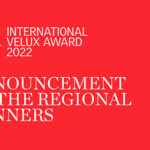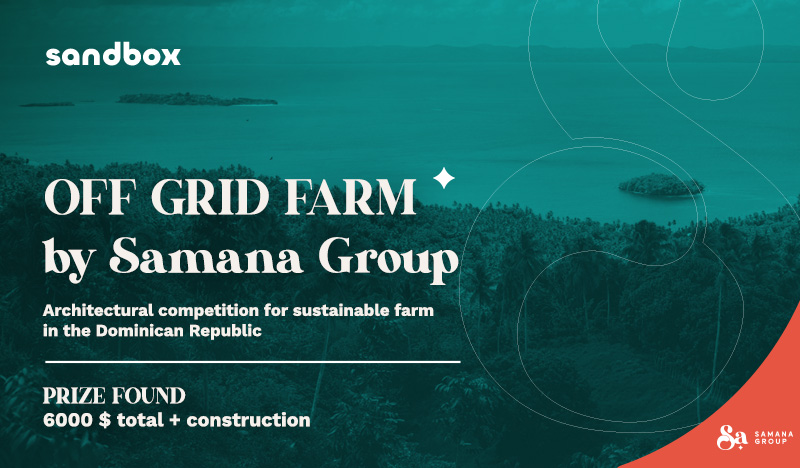Submission: April 01, 2016
Registration: April 01, 2016
Language: English, German
Location: Concept
Prizes: N/A
Type: Open
Contemporary cultural theory has recently begun problematizing the very tools of history and thus our ability to comprehend and present the meanings of events unfolding around us. So-called object-oriented ontologies aimed to reframe the question of the object, and thus its place in history and in contemporary events. Possessing their own agency, their materiality considered animated and vibrant, objects started claiming their place alongside subjects and textual production in the making of historical relations. What bearing does this have upon architecture?
While on the one hand objects – and thus also buildings – seem to ooze with agentic power and vibrant materiality, on the other hand they are undone and dematerialized into codes and algorithms, invisible infrastructures, networks and databases. The contemporary challenge of historical research is simultaneously concerned with addressing the materiality of the object and with establishing networks of relations, connections and patterns between them.
This latter development might be able to help plot a complex circuit of circulations, migrations and forms of connections otherwise invisible to architectural history. Furthermore, the history of the Bauhaus is indeed a history of migration: its architects, artists, documents, objects, and of course its ideas, have splintered across a fragmented world, leading to disputes and sometimes to legal challenges concerning authenticity, physical and intellectual ownership, and copyright. Some of the protagonists of the Bauhaus-founded schools, in both the East and the West, that were dissident either politically or to professional orthodoxies – from the Chicago Bauhaus and Black Mountain College to the continuations of the school in the Ural, Africa, Latin America or in Ulm – provided spaces of free thinking and imagination.
Just as in the Bauhaus and post-Bauhaus years, architecture is again entangled in geo-political transformations on a global stage. Refugees are arriving in Europe in numbers not seen since the end of WWII, demanding that we rethink identity, the city and housing. From a different perspective, the entangled crisis of conflict and climate change means that traditional modes of inhabitation need to be rethought and questions of preservation take on more than just historical meaning.
CALL FOR PAPERS
Download CFP
The Young Bauhaus Research Colloquium, Dust and Data, hosted by the Bauhaus-Universität Weimar as part of the International Bauhaus Colloquium, aims to reflect upon the most urgent theoretical, historical and political questions facing architecture today. Taking place in 2016, precisely forty years after its inauguration in the GDR, and just prior to the 100th anniversary of the Bauhaus, this conference will engage with Bauhaus history against the backdrop of the emergence of new historical methods, new modes of collection and technologies of interpretation, as well as problems of reconstruction and preservation that define the praxis of architectural history and theory today.
We invite papers by scholars to present research that seeks to locate architectural history and theory of modernism and the Bauhaus, specifically, against the backdrop of a world in flux. Scholars can be PhD candidates, PhD graduates or researchers in the field of architecture, architecture and art history, conservation studies, cultural theory, media and information science.
Papers might address the following themes and questions:
Under the theme OBJECTS we will explore the recent challenges of architectural research to approach and capture the objects of its history through practices of critical material analysis employed in restoration and conservation. How have new surveying and reproduction techniques challenged traditional processes of reproduction? What questions do they raise in relation to authenticity, fakeness, authorship, copyright and copy-left?
The thematic section ARCHIVE will be assembled to discuss both old and new critical archival practices in architectural history. Topics such as physical and digital storage, classification and collection will be examined as ways to rewrite and reconsider historical narratives and the spaces that bring them into being. We will ask how changes in the documents that compose architecture – from physical photographs, documents, drawings, models and letters to digital production – challenge classification, collections and curatorial practices.
The section entitled MIGRATION will debate new historiographical approaches towards narrating the histories of modernism and their various afterlives. While we will discuss the story of the Bauhaus and its historiographies, we will also look at the migration of international modernism and in particular its entanglement with colonial history. How can we capture colonial modernism’s own complex and circuitous paths? The question might be most urgent in the Middle East – where a legacy of modernism has only just begun to be explored, but has become vulnerable to decay, neglect and most dramatically to destruction through war and wilful demolitions.
Within the section entitled DATA we will assemble papers that open architecture, urbanism and infrastructure onto the challenges of data; that is, the dematerialization of the architectural object into networks and larger environments. The section will encapsulate topics such as migration (of people) and circulation (of objects) in space, as well as the calculation and prediction of change across larger environments. Could tools of data analysis and even big-data, born in the research and development labs of western militaries and financial institutions, be subverted to be critically employed to help provide the historian with tools to comprehend, compose and recompose the relation between architecture and history? What Faustian pacts, dangers and complicities are involved in adopting such methods? And how can we assess the potential entanglements of humans, digital databases and machines?
This conference will place Bauhaus culture within a contemporary global discussion on the most urgent questions of architecture and other disciplines. Following the interdisciplinary tradition of the Bauhaus – which fostered extreme juxtapositions of material production, design and avant-garde performances – the conference will juxtapose with presentations by international scholars, architects and artists with performance lecturers. The conference will thus simultaneously become the site of scholarly production, artistic experimentation and the exposition of architectural innovation. It will deal with the most current and burning issues facing the world today and the responsibility of the architect and the designer in the face of global politics, a position held by the Bauhaus in the turbulent years of the Weimar Republic.
The conference language will be German and English.
There are plans to publish a well-edited selection of papers, performances and discussions from the proceedings.
All workshop sessions will be moderated and guided by established international researchers and experts.
SUBMISSION
Proposals in English or German of no more than 500 words including a title should summarize the subject and the premise. Please include your name, university, professional affiliation (if applicable), address and telephone numbers, e-mail address and a biographical note of max. 250 words.
Please send proposals and biographical notes by e-mail, including the text in both the body of the e-mail and in the attachment to: youngresearch@bauhaus-kolloquium.de
More information is available at www.bauhaus-kolloquium.de








